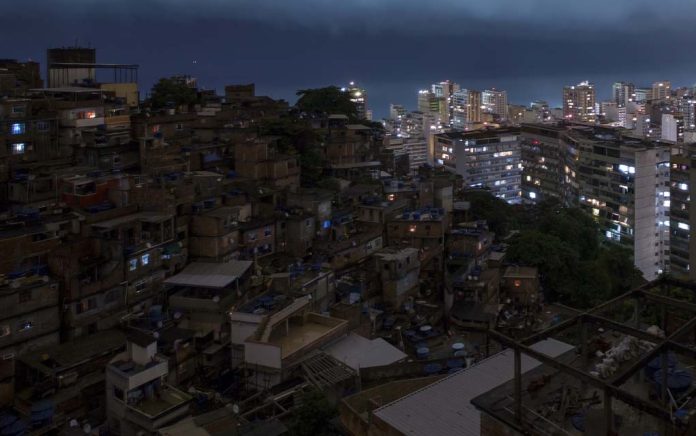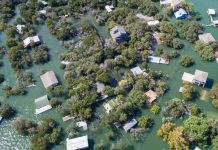
Blackouts can happen at any time. Sometimes they’re weather-related, sometimes they’re due to rolling blackouts and some speculate that it’s just a matter of time before an EMP causes a permanent blackout. Whatever the case may be, the only way to get through one with minimal disruption to life is to be prepared for a blackout in any season.
Alternate Power Sources
The best way to prepare for a power outage is to secure an alternate power source, but that isn’t as easy as it sounds. For most people, generators or solar power are among the most reasonable options. Those are perfectly workable solutions as long as you plan properly.
The biggest mistake people make when they opt for generators is not understanding the requirements to use them. In a power outage, even gas stations can lose power. So if your generator is gas-powered, you may find yourself SOL after a while or facing price gougers. The point is if you’re going to rely on a generator, make sure you have the fuel to use it. Not only that, but be sure to use it safely by keeping it outside, within a specified distance, so the fumes don’t poison you in your own home.
When it comes to solar power, many people get the panels and hook them up to the grid, enjoying the benefits of lower electric bills and even sometimes getting a return from the electric company as they generate more power than they use. Sounds great, right? There’s just one problem with that — if your excess power is sent to the grid, where does it go when the grid is down? Without a battery, solar power has only limited usefulness during a blackout. The answer? Make sure you have enough battery storage to hold the power your solar system generates.
If an Alternate Power Source Isn’t an Option
If you don’t happen to have an alternate energy source to power your home, it may be vital to your survival to be prepared to function without electricity. You may need to manage your medication and food in a whole new way. Make sure you’re prepared for a blackout with no alternative energy source with the following considerations:
- Surge Protection: We aren’t talking about surge protection that you plug things into. Rather, be aware that when there are blackouts, they are often followed by surges of electrical power. Those surges can cause damage to your electrical devices. To protect them, shut off all the breakers but one and unplug all devices but one on the breaker that remains on. We suggest using a lamp for this purpose. This way, you’ll know when the power is back on, but the most you have at risk is a lamp.
- Store Medication: If you have medication that you need to keep cold, use a small cooler with ice packs. If you don’t have ice or ice packs, consider putting it in the toilet tank that holds the water you use to flush. If you happen to live near a body of water, you might consider submerging your medication in a waterproof container, as water heats and cools slower than the ground does, and may keep your medications cooler than your house would.
- Landscape Indoors: Do you have solar lights outside in your landscaping? If so, it’s time to bring them inside at night. Let your lights charge outside, then use them for indoor lighting when the sun goes down.
- Seal the Freezer: Avoid opening your freezer at all. Instead, seal it with a piece of tape to remind people not to open it so the food inside stays cold until you really need it. Move freezable items from the refrigerator to the freezer before sealing it.
- Maintain Temperatures: Whether it’s winter, summer or in between, head to the basement or other underground structure for level temperatures. Below the frost line temperatures stay around 56 degrees no matter what season it is.
- Prepare Water: Hopefully, you have some fresh water already stored for drinking. But you’ll need it for other things too, like washing and flushing. Fill your tub and sinks, and any containers you can fill before the pipes empty. If you’re on city water and the city has power, you should still do this in case the city loses power, too.
- Ration Food: Be prepared to ration food in case the blackout lasts for an extended period of time. Start with the food that is likely to perish first, then work your way up to the non-perishables.
- Heat Safely: If you can’t get to an underground shelter and you need to use heat, be sure to do it safely. That means not using the cooking stove to heat the house or using heaters or generators inside unless they are specifically marked as ventless for a smaller area than your home. If the area you’re trying to heat is bigger than the ventless heater is designed for, that means the fumes won’t collect in a small area.
- Plan to Leave: If the blackout lasts for an extended period of time, things could get ugly. You need to have a survival kit ready to go in case this happens. Pack it with medical supplies and a first aid kit, food, water, clothing, shelter material, battery-powered radios and weapons.
One thing you can be relatively sure of is that a survival situation is likely to occur in some form, and chances are you’ll have very little notice when it does. That’s why we always recommend that you have a plan that includes responsibilities for each member of the household. Practice that plan on a regular basis and with different scenarios. If you do that, surviving a blackout or any other natural disaster will be much easier because you won’t have to think about what to do. Instead, you’ll simply do what you have practiced.
If nothing else, always keep fresh water and a battery-powered radio handy. You can survive for longer without food than you can without water, and the radio will let you know when things are all clear.
Copyright 2022, TacticalNews.com



















